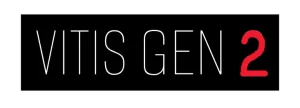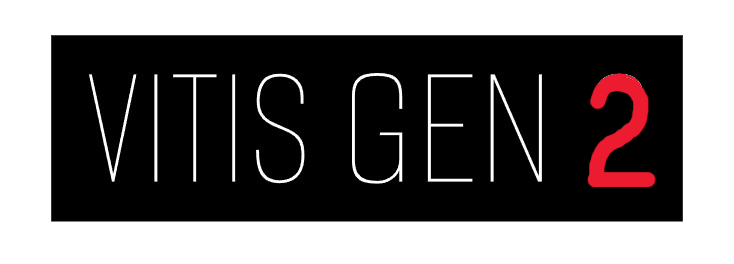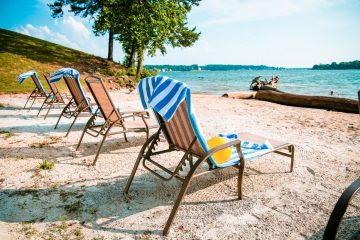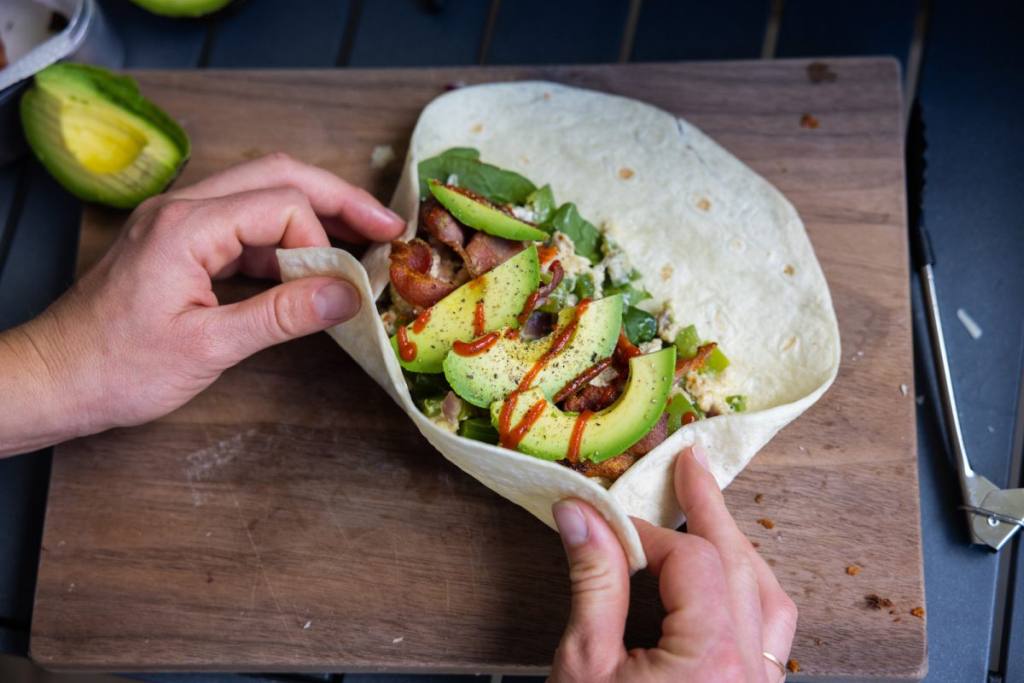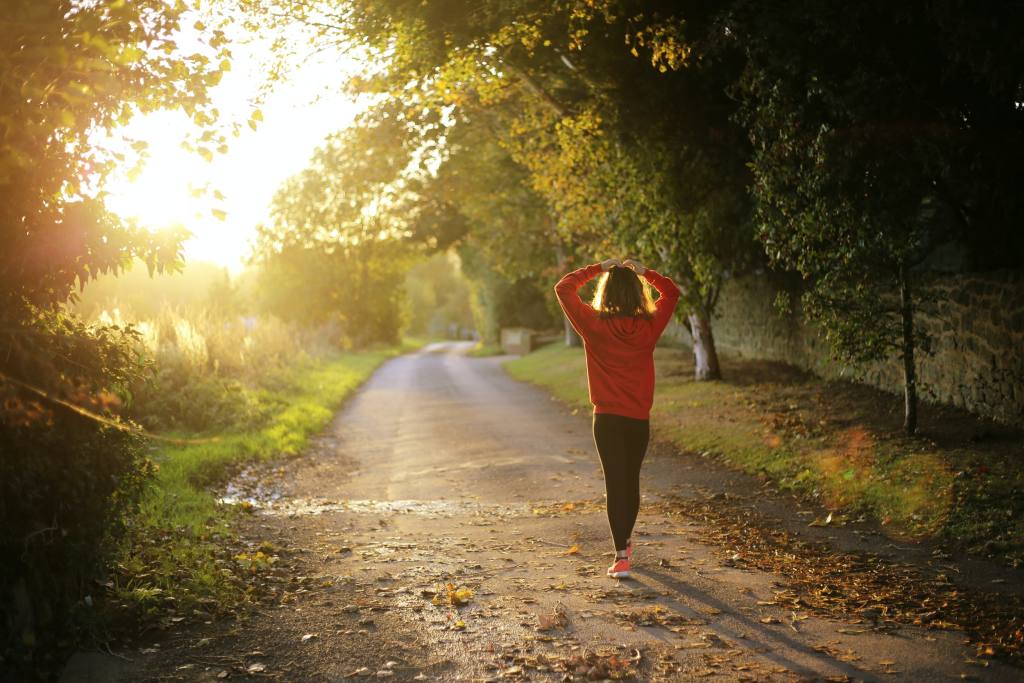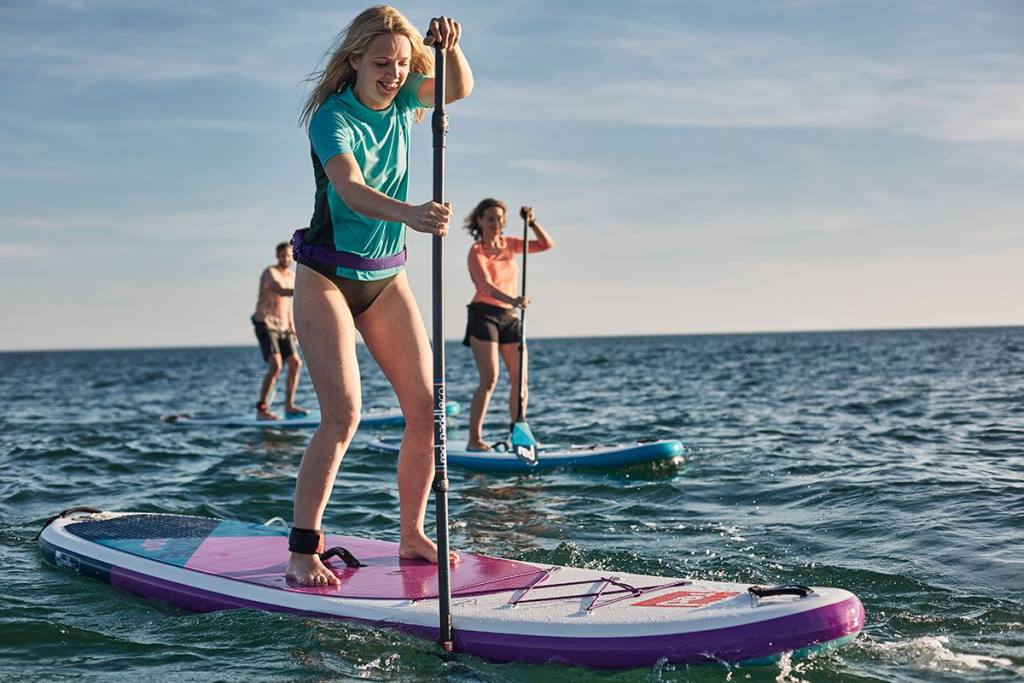
Paddleboarding has quickly become one of the most popular water sports around, offering a perfect blend of relaxation and exercise. It’s a versatile activity suitable for people of all ages and fitness levels, allowing you to explore lakes, rivers, and even the ocean. Whether you’re looking for a new way to stay fit, enjoy nature, or simply try something different, paddleboarding is an excellent choice. This beginner’s guide provides essential tips and tricks to help you get started and make the most of your paddleboarding experience.
Choosing the Right Paddleboard
Selecting the right paddleboard is the first step in ensuring a positive experience on the water. Paddleboards come in various shapes, sizes, and materials, each designed for different types of paddling. For beginners, a wider and longer board offers more stability, making it easier to balance as you get used to standing on the water. Inflatable paddleboards are a great option for beginners because they are easy to transport and store, yet still provide good stability.
When choosing a paddleboard, consider where you plan to use it. If you’ll be paddling on calm lakes or slow-moving rivers, a flat-water board with a wide deck is ideal. For those interested in catching waves, a shorter and narrower board designed for surfing might be a better fit. Additionally, think about the paddle length; it should be about 8-10 inches taller than you for optimal performance. The right board and paddle will make learning to paddleboard easier and more enjoyable.
Mastering the Basic Techniques
Before heading out onto the water, it’s crucial to familiarize yourself with the basic techniques of paddleboarding. Start by practicing how to carry and launch your board safely. When carrying your paddleboard, hold it by the handle in the center, making sure the paddle is securely attached to your wrist or the board.
Once you’re in the water, begin by kneeling on the board to find your balance. Paddle a few strokes on each side while kneeling to get a feel for the movement. When you’re ready, slowly stand up with your feet shoulder-width apart, keeping your knees slightly bent and your core engaged. This position helps maintain balance and reduces the risk of falling.
When paddling, use long, smooth strokes, reaching the paddle forward and pulling it back toward your feet. Alternate sides every few strokes to keep moving in a straight line. Your upper body should do most of the work, with your arms and shoulders helping to guide the paddle. Practicing these basic techniques will help you build confidence and enjoy your time on the water.
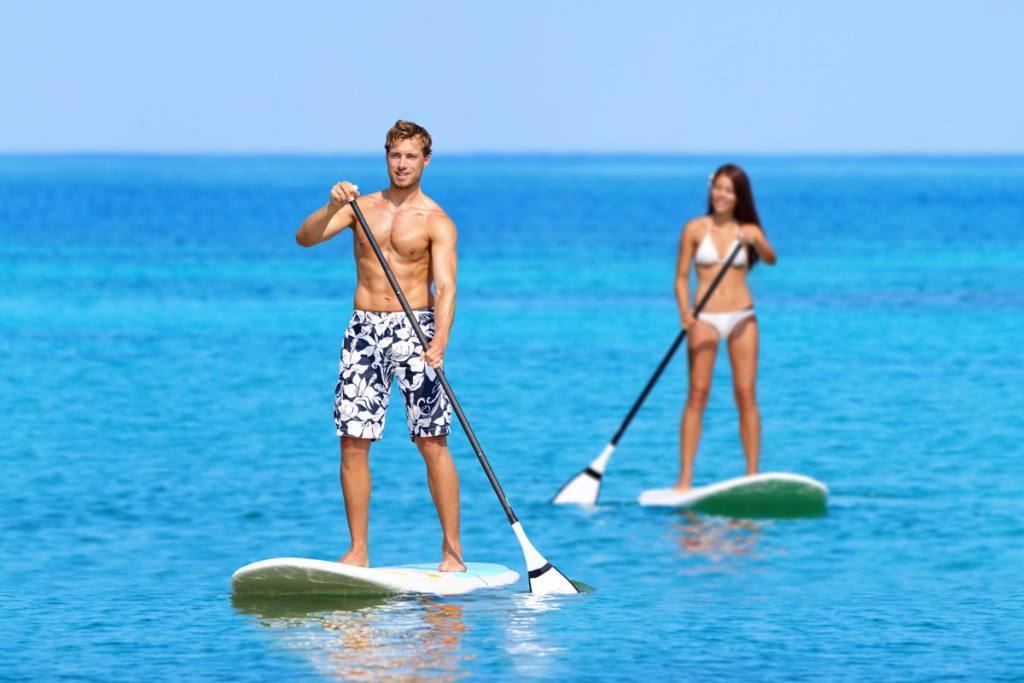
Staying Safe on the Water
Safety is paramount when paddleboarding, especially for beginners. Always wear a personal flotation device (PFD) or life jacket, regardless of your swimming ability. Many areas also require a PFD by law, so make sure you comply with local regulations.
Checking the weather forecast before you go out is also essential. Avoid paddleboarding in high winds, strong currents, or choppy water, as these conditions can make it difficult to control your board and increase the risk of accidents. If you’re paddling in open water, stay close to the shore where you can easily reach safety if needed.
Another key safety tip is to use a leash. The leash attaches your ankle to the board, ensuring that if you fall off, the board won’t drift away. This is especially important in rough waters or when paddling in the ocean. Finally, always let someone know your paddleboarding plans, including where you’re going and when you expect to return, so they can raise the alarm if something goes wrong.
Building Endurance and Strength
Paddleboarding is not only a fun activity but also a great workout. It engages your core, legs, arms, and back, providing a full-body workout that improves strength and endurance over time. For beginners, it’s important to start slowly to avoid fatigue and build up your stamina gradually.
Begin with short sessions, about 20-30 minutes, focusing on maintaining proper form and balance. As you become more comfortable, gradually increase the duration and intensity of your paddling. Incorporating a variety of strokes, such as forward, backward, and sweep strokes, can also help build strength and improve your paddling efficiency.
In addition to paddleboarding, consider incorporating other exercises into your routine to enhance your performance on the board. Core-strengthening exercises, such as planks and yoga, can improve your balance and stability, making it easier to stay upright and paddle efficiently. Regular practice and conditioning will help you enjoy longer and more challenging paddleboarding adventures.
Conclusion
Paddleboarding offers an incredible opportunity to connect with nature, stay fit, and enjoy the water in a unique way. By choosing the right gear, mastering basic techniques, prioritizing safety, and building endurance, beginners can quickly become confident paddleboarders. Whether you’re exploring calm lakes or venturing out into the ocean, paddleboarding is a versatile and rewarding activity that can be enjoyed for years to come. For more tips on starting your paddleboarding journey, visiting a reputable outdoor website can provide additional resources and advice.
Easy Recipes for Your Next Camping Trip
2024-08-11
Leave a reply Cancel reply
News
Most Viewed
About Us
Our magazine is dedicated to those who seek to enrich their lives with unforgettable culinary experiences and thrilling adventures. At Vitis Gen 2, we believe that every meal tells a story, and every journey is a new chapter waiting to be explored.
